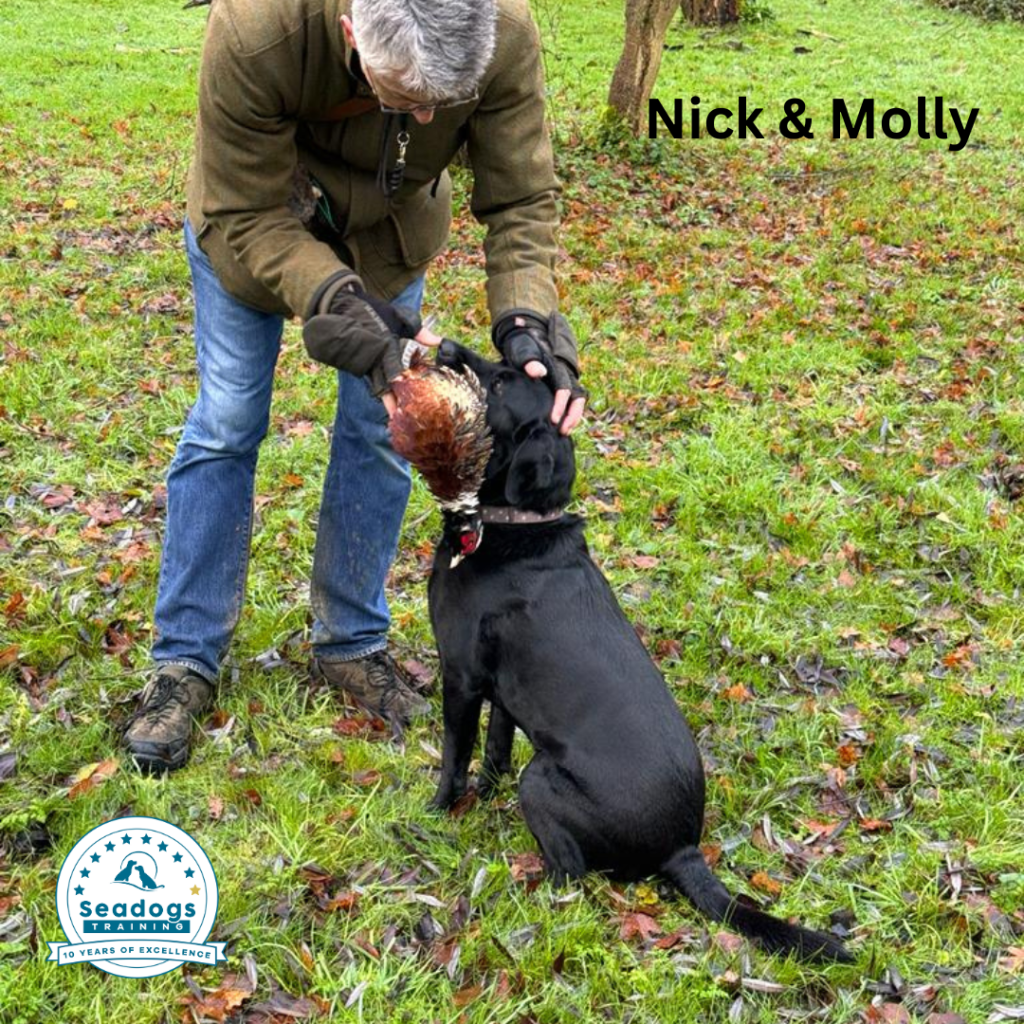Introduction:

Nick and his black Labrador, Molly, have embarked on a journey to enhance their hunting and retrieval skills. While Molly showed promise with partridges, issues arose when it came to retrieving pheasants. In this blog post, we’ll delve into the challenges they faced and the effective training strategies employed to address them.
Identifying the Problem:
The primary challenge observed was Molly dropping game, particularly pheasants, on her way back. This behaviour was linked to handler error, often triggered by panic on shoot days. The inclination to grab the bird as Molly approached caused her to shy away or drop the game.
Additionally, there was a weight distribution issue, as real birds were heavier than the dummies used in training. Molly’s neck muscles needed exercise to carry heavier objects, preventing the nodding and head-dropping behaviour.
Training Strategies:
- Handler Composure:
- Panic and abrupt movements by handlers can lead to retrieval issues.
- The key is to remain calm and avoid reaching out or grabbing the bird.
- Allowing the dog to come to the handler without interference is crucial.
- Weight Distribution and Exercise:
- Gradual progression from lighter to heavier objects in training.
- Focus on exercising neck muscles to handle the weight of real game.
- Initial Days of the Season:
- Recommended avoiding retrievals in the first few outings to prevent overexcitement.
- Dog should learn to be a companion before associating every shot with a retrieve.
- Recall Training:
- Use recall whistles for a prompt return.
- Molly’s recall improved with multiple pips on the recall whistle.
- Correction Techniques:
- If Molly dropped the bird, immediate action was taken.
- Molly was calmly led back to the drop site without fuss.
- The bird was placed in her mouth with a firm “hold” command.
- Incremental increases in distance and repetitions were used for reinforcement.
- If she dropped again, the process was repeated with reduced distance.
Conclusion:
Nick’s proactive approach to addressing retrieval challenges with Molly during the season demonstrated the importance of immediate correction and ongoing training. By identifying issues early on and implementing targeted strategies, they made significant progress in a single session. The blog emphasises the significance of handler composure, proper recall training, and gradual progression in preparing dogs for real-game retrievals. The key takeaway is to address problems promptly to prevent them from becoming ingrained behaviours.
